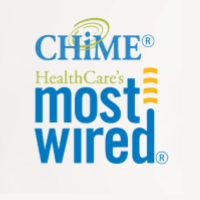 Interoperability is taking a step in the right direction, but providers may find themselves challenged in coming years, according to an analysis of data collected in the 2018 CHIME (@CIOCHIME) HealthCare’s Most Wired survey.
Interoperability is taking a step in the right direction, but providers may find themselves challenged in coming years, according to an analysis of data collected in the 2018 CHIME (@CIOCHIME) HealthCare’s Most Wired survey.
William Spooner, chair of the Most Wired Board of Governors, Drex DeFord, a member of the Board of Governors, and Bobby Low, KLAS vice president of customer insights strategy and analysis, presented the results at the College of Healthcare Information Management Executives (CHIME) Fall CIO Forum in San Diego. The presentation was offered as a preview of HealthCare’s Most Wired National Trends Report 2018. This is the first year that CHIME conducted the Most Wired survey and the first year a trends report based on survey data has been made available for the industry.
“One of the key objectives of the Most Wired program is to drive change in the industry with the goal of improving patient safety and outcomes,” Spooner said. “Each participating organization received a benchmarking report to help them assess their strengths and gaps, but we wanted to go beyond just the participants. The trends report is designed to help any healthcare organization identify opportunities to improve and advance our industry.”
The report found that access to patient health information is now commonplace, suggesting the next investment could be in communication channels with patients. Many organizations report that they have the capability to consume data from outside entities such as an external hospital system or a retail pharmacy, although less so with home health agencies, skilled nursing homes and chronic care facilities.
Meaningful use has helped drive the development and use of patient portals, and progressive providers have adopted several additional capabilities, according to the analysis. Many patients have readily transitioned to mobile apps offered by most portals. The presenters noted that regulations on application programming interfaces (APIs) under Promoting Interoperability – the Centers for Medicare and Medicaid Services’ renaming for Meaningful Use – will expand engagement opportunities with patients but also pose security challenges for providers.
Besides interoperability and patient engagement, the report examines security and disaster recovery, technologies to support population health management, telehealth and more. The report is available on the CHIME website.
About CHIME
The College of Healthcare Information Management Executives (CHIME) is an executive organization dedicated to serving chief information officers (CIOs), chief medical information officers (CMIOs), chief nursing information officers (CNIOs) and other senior healthcare IT leaders. With more than 2,800 members in 51 countries and over 150 healthcare IT business partners and professional services firms, CHIME provides a highly interactive, trusted environment enabling senior professional and industry leaders to collaborate; exchange best practices; address professional development needs; and advocate the effective use of information management to improve the health and healthcare in the communities they serve.
